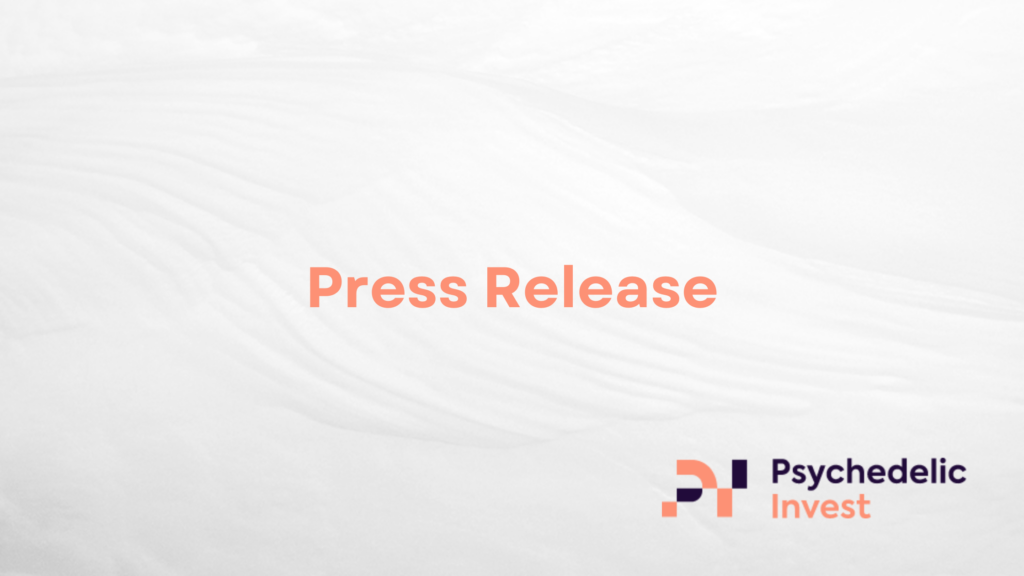Psilocybin
Study Shows Psilocybin Combats Stress by Triggering Rise in Stress Hormone
A new study published in the “ACS Pharmacology & Translational Science” journal has revealed that psychedelics such as psilocybin may combat stress…

A new study published in the “ACS Pharmacology & Translational Science” journal has revealed that psychedelics such as psilocybin may combat stress by triggering a temporary increase in stress hormones. The research provides more insight into the potential underlying mechanisms that may allow psychedelics to deliver various mental health benefits.
Psilocybin is a psychedelic compound that occurs naturally in certain mushroom species. It is converted into the active form psilocin when ingested and mainly interacts with serotonin receptors in the brain. The traditional “psychedelic experience’” occurs when psilocin interacts with the serotonin 2A receptor subtype and induces feelings of altered mood, consciousness and perception.
A recent surge in psychedelic-related research found that various psychedelics have the potential to offer long-term relief against several mental-health disorders at low doses and with minimal adverse side effects. Researchers have spent the past few years researching the potential benefits of using psychedelics as alternative treatments for hard-to-treat mental disorders, including post-traumatic stress disorder (PTSD), major depressive disorder and eating disorders.
There has also been a concerted effort to understand how psychedelics interact with the brain to figure out how to develop effective psychedelic-based therapies. These research efforts culminated in a type of therapy called “psychedelic-assisted therapy,” which involves dosing patients with psychedelics and then guiding them through psychedelic experiences before helping them integrate the insights they made during the experience into their lives.
As clinical studies involving psychedelic-assisted therapy have registered incredibly promising results, this type of therapy has attracted plenty of public attention because of its potential to treat conditions such as PTSD and depression long-term.
Cody J. Wenthur, study author, University of Wisconsin–Madison assistant professor and director of Psychoactive Pharmaceutical Investigation Programs, noted that psychedelics such as psilocybin are attracting considerable scientific attention, especially in clinical trials, as support for nondrug, talk-therapy approaches.
With these psychedelic compounds drawing closer and closer to FDA review, Wenthur said gaining an understanding of how psychedelics function on a biological level will be crucial to designing psychedelic-assisted treatments that minimize patient risk and maximize safety. Wenthur and his team used a mouse model to study psilocybin’s pharmacological and biological aspects. They found that a certain dose of psilocybin produced anti-anxiety effects similar to anxiolytic drugs around four hours after initial dosing.
Additionally, the researchers discovered that psilocybin triggered a rapid increase in corticosterone levels in blood plasma, indicating that the stress hormone played a role in psilocybin’s anti-anxiety effects. However, psilocybin didn’t deliver any significant anti-anxiety effects in mice with consistently high corticosterone plasma levels.
As other enterprises such as Seelos Therapeutics Inc. (NASDAQ: SEEL) dig further into understanding how different psychedelics bring about their therapeutic effects, the world could see an array of hallucinogenic-based formulations approved by regulators such as the FDA for treating a variety of mental health and other ailments.

-

 Psilocybin1 week ago
Psilocybin1 week agoAre Shrooms Legal in Oregon: Full Guide
-

 Psychedelics1 week ago
Psychedelics1 week agoAtai Life Sciences Announces the Publication of Beckley Psytech’s Phase 1 Study of BPL-003 in the Journal of Psychopharmacology
-

 Law & Regulation1 week ago
Law & Regulation1 week agoClearmind signs agreement with Hebrew University for psychedelic compound rights
-

 Psychedelics1 week ago
Psychedelics1 week agoCybin Announces Publication of Research Manuscript in the Journal of Medicinal Chemistry
-

 Psilocybin1 week ago
Psilocybin1 week agoCalifornia advances bill for psychedelics centers
-

 Psilocybin4 days ago
Psilocybin4 days agoPassover Perspectives: Psychedelics, Moses, and the Burning Bush
-

 Psychedelics1 week ago
Psychedelics1 week agoPsychedelics Can Offer More Than Therapy On Its Own
-

 Psychedelics1 week ago
Psychedelics1 week agoRevive Therapeutics Announces FDA Acceptance of Meeting Request for Long COVID Diagnostic Product








